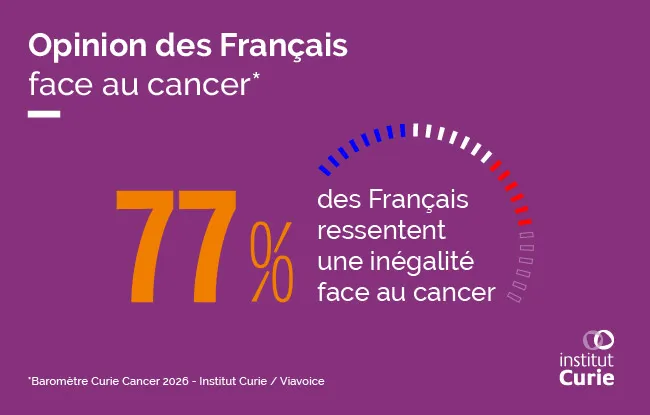- Home >
- Institut Curie News >
- TEMTIA conference: understanding and targeting EMT to fight metastases
What makes epithelial–mesenchymal transition (EMT) a key factor in fighting cancer?
Prof. Alain Puisieux: We’ve known for a few years now that cancer isn’t just a cluster of cells that proliferate homogenously. Cancer is a dynamic process that causes heterogeneity. This intra-tumoral heterogeneity is notably linked to the fact that the cancerous cells present exacerbated cellular plasticity and thereby acquire the ability to change state and identity. This isn’t a mutation, but rather a reprogramming based on epigenetic phenomena. In the context of metastatic dissemination, then, because of EMT reactivation, the cells acquire mobile and invasive capacities as well as stem cell properties that allow them to reform a tumor at a distance.
Pierre Savagner: The process was initially defined by analyzing steps in embryonic development alongside cell lines in which a process of cell individualization could be observed. But the concept soon evolved to encompass comparable steps in tumor progression. From a clinical perspective, the cells dedifferentiate, generating distinct clones responsible for tumoral heterogeneity and becoming resistant to treatment and immune response. These cells lose their identity as cohesive differentiated cells belonging to the organism, thereby dissolving a close and vital relationship. They individualize, all while proliferating.
What are the major breakthroughs we’ve seen in this field over the past 10 years?
Prof. Alain Puisieux: The past 10 years have shed light onto the role played by aberrant EMT reactivation during the development of cancer, from the early stages to metastasis formation and resistance to treatment. The cellular plasticity brought about by EMT allows cancerous cells to adapt to their environment by adopting particular states, supporting the development and progression of the disease. Some of these states have been characterized, paving the way for the possibility of targeting them for therapeutic application with a view to blocking the most aggressive cancerous cells’ capacity to adapt.
Pierre Savagner: We’ve seen the concept mature into a more realistic vision. Research has been able to define intermediate phenotypes that point to a metastable state, which the cell is capable of maintaining, allowing for the emergence of tumoral subpopulations that are potentially more clinically dangerous.
What are you hoping to get out of this 2022 conference? Which talks are you most looking forward to?
Prof. Alain Puisieux: Robert Weinberg from MIT, who was the first to prove the role that EMT plays in metastasis, Thomas Brabletz, who specializes in EMT in colon cancer metastases, and Anushka Dongre from Cornell University, who specializes in immunotherapy resistance, are just a few of the names to look forward to. And allow me to also mention Danijela Vignjevic, Head of the Cell Migration and Invasion team (CNRS UMR144 / Sorbonne University) and Raphaël Rodriguez, Head of the Chemical Biology team (CNRS UMR3666 / Inserm U1143) at Institut Curie, who will be presenting original, promising findings on metastatic dissemination mechanisms and targeting plasticity in cancerous cells.
Pierre Savagner: For me, Sarah-Maria Fendt’s presentation on the metabolism, an aspect that’s currently revolutionizing cancer, which offers a better understanding of how cells modify the way they consume energy in particular. But on a more personal level, the conference is also an opportunity to come together as a warm community of colleagues and friends who have been working together for 20 years now, buoyed by a shared drive to better understand cancer as a disease and process.



